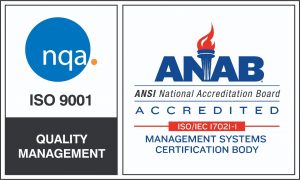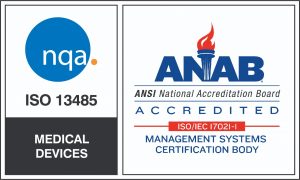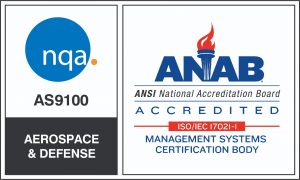 Contract manufacturing enables organizations to produce products without the large expense of machinery and technology or the operating costs associated with manufacturing. While contract manufacturing offers numerous benefits to companies across a wide range of industries, there are significant benefits for the medical equipment and device segment.
Contract manufacturing enables organizations to produce products without the large expense of machinery and technology or the operating costs associated with manufacturing. While contract manufacturing offers numerous benefits to companies across a wide range of industries, there are significant benefits for the medical equipment and device segment.
Strict requirements and the need for machinery capable of creating precision-dependent products often creates a barrier for organizations wishing to enter the medical device industry. These same factors cause many OEMs to leave the market as well. Organizations could benefit from utilizing the help of an experienced medical device contract manufacturer.
Hiring a contract manufacturer allows OEMs to spend less capital, hire fewer employees, spend less time and effort on quality control, and eliminate purchasing hassles. The contract manufacturer handles procurement, production, and testing, allowing the OEM to focus on other important aspects of their business.
Organizations wishing to hire a contract manufacturer should consider it as they would any other long-term business relationship. Before selecting a CM, it’s important to gather as much information as possible.
Selecting a Contract Manufacturer
OEMs should take care to ensure they fully understand the capabilities, strengths, weaknesses, and experience of the contract manufacturer they choose. It’s highly suggested that OEMs develop a list of questions prior to contacting and interviewing each CM. It might also be beneficial for the OEM to contact some of the CM’s customers for feedback.
Process Development
After selecting a contract manufacturer, the development process begins. If this is an existing product being transferred from the OEM, all existing work instructions and raw material sources get shared with the CM at this point. During a series of “knowledge transfer” meetings, the OEM and their staff provide as much information as possible about the manufacturing process. These meetings shouldn’t just include engineers and operators, assembly workers with experience creating the part should be involved as well.
For new products, the contract manufacturer will need to develop the manufacturing process and supply chain. However, it’s still important for the OEM to provide input and knowledge as necessary.
Training & Process Qualification
Once the process is defined, operator training and qualifications begin. Regardless of the type of product, there are standards and optimum processes to adhere to. This is especially true when producing medical devices. These devices face some of the strictest quality standards.
Pilot Builds
The pilot build allows OEMs and contract manufacturers to locate areas that could benefit from improvement. This is the stage when the OEM or CM makes adjustments to the work flows and/or the work instructions.
Entering the Production Phase
Following the pilot build, the CM begins production of the product. It’s crucial that OEMs provide an accurate demand forecast at this point. This helps the CM determine raw material procurement schedules and reorder points.
Means Engineering provides contract manufacturing services for the medical device industry. Please contact us for details.
 Entrepreneurs face many challenges when starting a business. In addition to figuring out how to properly market and brand their business, they must also determine how to bring new products to market. Obtaining office space and hiring and training marketing personnel and office management takes up a significant portion of a start-up’s budget, leaving very little to produce prototypes. Unfortunately, it’s not likely that a start-up will receive funding without a tangible product that investors can see and touch.
Entrepreneurs face many challenges when starting a business. In addition to figuring out how to properly market and brand their business, they must also determine how to bring new products to market. Obtaining office space and hiring and training marketing personnel and office management takes up a significant portion of a start-up’s budget, leaving very little to produce prototypes. Unfortunately, it’s not likely that a start-up will receive funding without a tangible product that investors can see and touch. While several options exist, companies often wonder where to start when looking for a contract manufacturer. Making the choice to outsource is an extremely important decision. It’s crucial that organizations take the time necessary to interview several companies.
While several options exist, companies often wonder where to start when looking for a contract manufacturer. Making the choice to outsource is an extremely important decision. It’s crucial that organizations take the time necessary to interview several companies. Across the nation, contractors are seeing increasing demand for electronic devices in almost every industry. Used for numerous applications in the defense industry, the rapid expansion of high-tech military equipment and components has created high demand for electronics manufacturing.
Across the nation, contractors are seeing increasing demand for electronic devices in almost every industry. Used for numerous applications in the defense industry, the rapid expansion of high-tech military equipment and components has created high demand for electronics manufacturing. Companies looking to expand into new markets often face difficult decisions. While most of these organizations understand the benefits of expansion and the potential for increased revenue, many simply aren’t sure how to acquire the equipment, space, and people needed to grow their business. This is especially true for OEMs and other organizations looking to produce parts or products for the medical, defense, or aerospace industries. These industries have strict requirements, and organizations must prove that they have the equipment and skills needed to meet tight tolerances and produce extremely complex devices.
Companies looking to expand into new markets often face difficult decisions. While most of these organizations understand the benefits of expansion and the potential for increased revenue, many simply aren’t sure how to acquire the equipment, space, and people needed to grow their business. This is especially true for OEMs and other organizations looking to produce parts or products for the medical, defense, or aerospace industries. These industries have strict requirements, and organizations must prove that they have the equipment and skills needed to meet tight tolerances and produce extremely complex devices.

